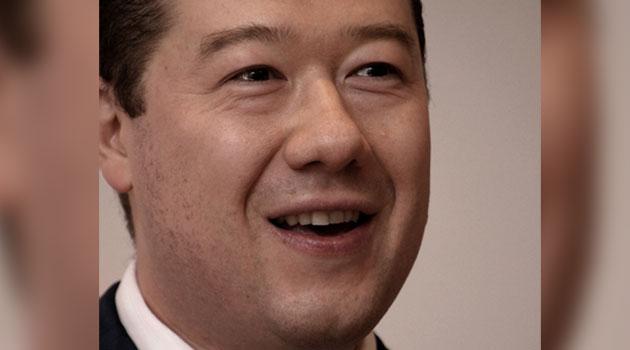Czech Police say MP's remarks about concentration camp for Roma not criminal

Czech MP Tomio Okamura, the chair of the "Dawn of Direct Democracy" (Úsvit) movement, did not commit a crime when he made his recent statements about the former concentration camp for Roma at Lety by Písek. News server Romea.cz has received a notification from the Police of the Czech Republic to that effect.
This past summer, Okamura showed his contempt for the victims of the former concentration camp when, in a statement for the online political tabloid ParlamentniListy.cz, he spoke of it as lie and a myth. He claimed no one was ever killed in the camp and that any prisoners who died there did so as a result of old age or of diseases brought with them to the camp contracted as a result of their previously itinerant lifestyle.
On 2 September 2014, Čeněk Růžička, the chair of the Committee for the Redress of the Roma Holocaust (Výbor pro odškodnění romského holocaustu – VPORH), filed a criminal report against Okamura together with ROMEA, o.p.s., Miroslav Kováč of the Equal Opportunities Party, and Michal Miko of the Slovo 21 association over the remarks, which were made on the eve of Roma Genocide Remembrance Day.
Now, after an "assessment of the qualification" of the criminal report and an investigation, police have come to the conclusion that "facts were not obtained that would reasonably suggest a crime has been committed." "The police authority has, after securing the necessary written materials and examining them in detail, been satisfied that no infringement occurred as described by the notifiers in their submission. There is no doubt that the statement by Tomio Okamura is populist and historically worthless, but as the notifiers themselves state, some of his remarks were made on the basis of historically attested truths," reads the police statement.
The police also remind those who filed the report that Czech MEP Miroslav Ransdorf (Communist Party of Bohemia and Moravia) previously said Lety should not be called a "concentration" camp and that the justice system came to the conclusion in 2005 that his statement did not constitute illegal behavior. "In this criminal investigation, the police have proceeded in a classic way – according to the Police Act. This process does not make it possible for the victims to file for remedy should they be dissatisfied with the police conclusions. We very often encounter this non-standard procedure in cases of verbal hate violence that are handled in Prague," lawyer Klára Kalibová of the In IUSTITIA organization told news server Romea.cz.
"The argument that it is impossible to prosecute one suspect because a different suspect was not prosecuted is ridiculous. The Criminal Code knows of no such procedure. In practice it would mean resigning in advance to the notion that police work will never be done well," Kalibová said.
The lawyer believes the case is a sad depiction of how the Czech justice system works in practice, namely, that Romani Holocaust denial is not viewed as seriously as Jewish Holocaust denial. "Those who reported this crime can now take advantage of other extraordinary supervisory tools and turn directly to the state attorney. It is also worth considering filing a motion with the Human Rights Minister, the Public Defender of Rights, and the European Commission on Racism and Intolerance, which will visit the Czech Republic at the end of November," said Kalibová.